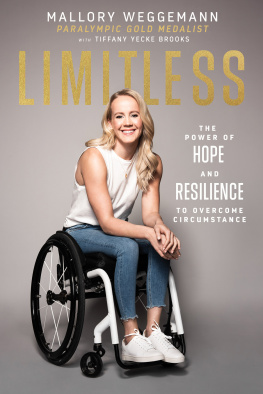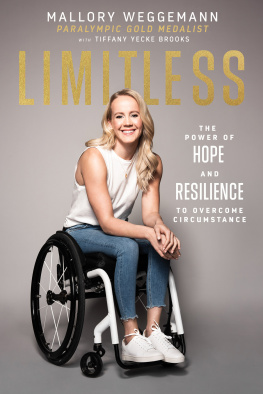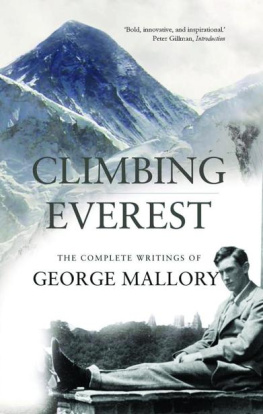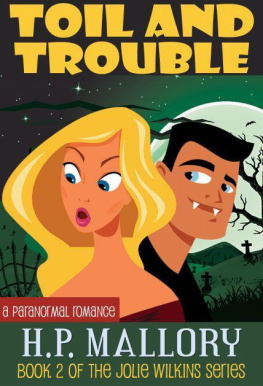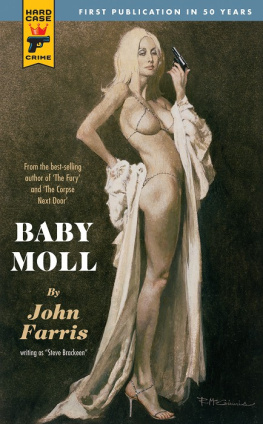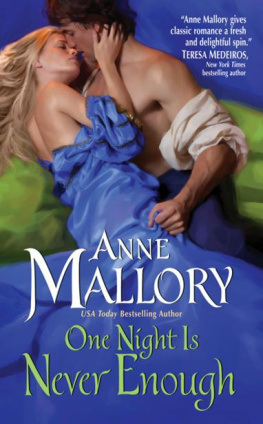
Carol O'Connell
Mallory's Oracle
The first book in the Kathleen Mallory series, 1994
For Paul Sidey, with thanks.
The dog came when she called. He came slowly, shivering in his pelt as he walked, picking his way lightly and gracefully on slender Dobermann feet. By her voice, he was pulled along through the rooms of the apartment and past the open door to the outer hallway. He entered the kitchen with the light clatter of nails on linoleum and met his mistress there. All the muscles of his body tightened in the dog's version of attention.
The animal's eyes were soft brown wounds in a sleek black face, and there were more literal scars on the skin beneath the dark fur. He owed his life, many times over, to youth and quick recovery, but he was no longer a puppy.
The woman was seated in her chair, and the dog knew it would be a while before she moved again. It was something in the smell of her when she was in this state, even before the woman's eyes would go all wide and staring.
A small misery of crying began deep in the dog's throat. He paced back and forth before the chair, sensing the woman's temporary blindness to her surroundings, her deafness to the dog's fear.
Time. How much time before the woman came round again? The eyes were rolling back in a trance. Soon now. The dog barked. Nothing, no blink, no reflex of any kind in the woman. The dog circled the chair, fear rising up to a human crying. He moved her hand with his nose. Nothing. The hand fell limply to her lap.
The dog wailed.
Soon.
The dog's mind was breaking. Regimentation instilled by pain was falling apart. He was departing from ritual, backing out of the room, terrified eyes fixed on the woman till he was clear of the kitchen. Now he turned and flung himself into the next room, racing across the carpet, passing through the open door and down the long hallway, paws touching lightly to ground in the perfect poetry of a beautiful animal in motion, muscles elongating and contracting, eyes shining with purpose. Now springing, rising, flying, crashing through the glass of the fifth-floor window.
The dog's heart was killed by the fright and strain of flight without wings. He was dead before his bones were broken on the pavement.
The boy's stringy brown hair fell over one eye. The other eye was fever-bright. His T-shirt was grime gray and yellow in the rings of stale sweat beneath the arms. Bony knees pushed through the strained and faded threads of his jeans as he crossed the room to the pawnbroker's cage.
Safely locked behind wire and glass, the old man in the cage only feared the pain in his mind might bleed from his eyes, and so he kept them cast down as he examined again what the boy had brought him.
The police station was only minutes away. How much time had passed, he wondered. Where was Kathy? Had he been right to call her? The old man's hand trembled as he wiped his face. What would the boy make of tremors and tears?
"What's taking so long, old man?" asked the boy. "Gold is gold."
Well, no, it was not.
The pocket watch bore the name of Louis Markowitz's grandfather. And the engraved initials inside the heavy gold ring told him this was the wedding band that Helen had given to Louis. The old man had attended that wedding. And twenty years later, when Helen died, he had been at the grave with Louis and Kathy. The watch and ring were more than gold to Louis, and he would not have given them up while he lived.
The boy hovered close to the cage and then flitted across the room. He spun around, levitating off the floor.
He was so thin, made all of wire, coursing with manic energy, sweat pouring off what little flesh he had, heat rising off his cooking brain, only wanting money to fill his veins with magic and fly away.
There was a light tap at the pawnbroker's window. Kathy Mallory had come. He buzzed her through the lock, and she walked in slow, stalking on long legs in dungarees. A black blazer over her T-shirt hid the gun. All the old man's compliments to her were made of hard but precious substance: her eyes were cold green jewels set in ivory and framed in an aureole of gold.
She moved on the boy in the shutter blink of the old man's eyes. It looked to him as though she had disappeared from the shaft of light by the window and then reappeared behind the boy on the other side of the room. Her lips parted, and just the tip of her tongue showed between her teeth. It must be his old eyes or his imagination she seemed to be tasting the moment. Her hands were rising, curling.
The boy was quickly turning, and he had not faced her yet when she grabbed him by one arm and pulled it up high behind his back. The boy screamed with pain as she slammed him into the wall. And there was fear in that scream, too. He seemed younger now, a wild-eyed child caught in the claws of his nursery-closet monster. This could not be happening, said the boy's eyes.
Where did you get the watch? she was asking him with another slam into the wall. Where? she asked, and never raised her voice, but tufts of the boy's hair came away in her hand when she had to ask him again.
***
Jack Coffey's mind was breaking with the exhaustion of nights without sleep. The question was endlessly looping back on itself: why had Markowitz gone in there alone? Why?
It made no damn sense at all, not for a smart cop with thirty years on the force. Raw recruits, still damp at the bib with mother's milk, were not so dumb and loved their skins more.
Lieut. Jack Coffey held his suit jacket slung over one arm. The wet stains on his pin-stripe shirt were darkest at the shoulder holster. His lean and sun-brown face was slack at the jaw, and his eyes were closing to slits.
Oh, talk about rookie cops. Maybe if he'd had a decent night's sleep he might not have behaved like one himself, stumbling out to the sidewalk to lose his last meal on the pavement. And now his knees were foiling him. He covered himself by leaning casually against one of the black-and-white units.
The street was crawling with black-and-whites and a few of the department's less conspicuous tan cars. The meat wagon was waiting patiently, doors hanging open. The two men from the medical examiner's office stubbed out their cigarettes and walked back inside. Nothing would get Jack Coffey back in there, nothing but the possibility of losing face in front of Kathy Mallory.
A siren cut the thick humid air, screaming like a woman. Some fool had called an ambulance, and it was rushing toward them as though there was still time for Louis Markowitz, as though the man had not been dead for two days.
And what a place to die. The windows of the six-storey building were all cracked glass and black holes. Chunks of concrete lay on the sidewalk, having fallen from the once-elaborate facade. In the past few weeks, this abandoned East Village tenement had done some service as a crack house. The addicts had left a trail of works winding from the sidewalk to the door.
The car dipped as another, heavier man joined him on the car's fender.
"Hello, Coffey," said Chief of Detectives Harry Blakely who was all gone to gray hair and not so lean as the younger man by forty pounds, nor so beautiful by twenty years of drink which put veins in his eyes and sallowed his flesh.
"Chief," Coffey nodded. "Riker filled you in?"
"Much as he could. It's the same freak? You're positive?"
"It's the same pattern with the wounds."
"Oh, God," said Blakely, as if God could find him in this section of lower Manhattan. Not likely, yet he wiped his face with a handkerchief and squinted up to where heaven would be if not for the crumbling brick of the tenement building. "You got a preliminary yet?"
Next page


